
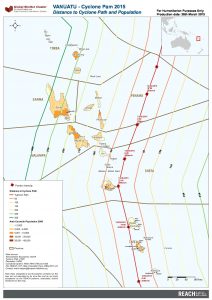
reach_vut_map_populationtrace_26mar2015
PDF576.6K


Vanuatu was struck by an extremely destructive cyclone, cyclone Pam, on the evening of March 13th in 2015. The category 5 cyclone affected an estimate of 166,000 people living on 22 islands, creating immediate needs for clean drinking water, emergency shelters and food. To provide information on the needs ensuing from the disaster, IMPACT deployed a REACH team to support the response led by the Global Shelter Cluster.
The data collected by REACH was used to develop the Shelter Cluster’s response strategy, as well as feeding into the shelter section of the World Bank post-disaster needs assessment, and the multi-sector needs assessment led by the Government of Vanuatu. Following the completion of shelter activities outlined in the Humanitarian Action Plan in July, REACH was redeployed to Vanuatu in August the same year to conduct a detailed evaluation of the shelter response.
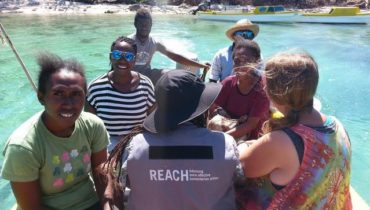
On the night of 13th March 2015, Cyclone Pam hit the island of Vanuatu, affecting an estimated 188,000 people across all six provinces and causing widespread damage to personal shelters,...
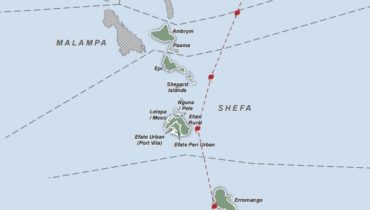
Following Cyclone Pam, which caused widespread damage when it struck Vanuatu on March 13th 2015, REACH teams were on the ground to implement a detailed inter-agency shelter and settlements vulnerability assessment in partnership with...
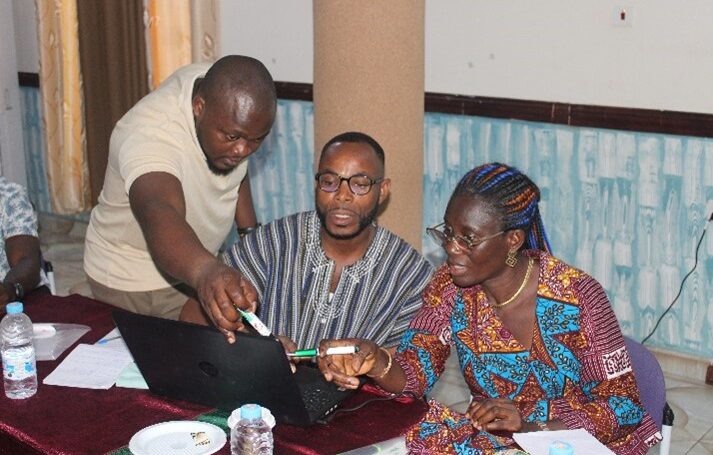
Avec le soutien de l’Union Européenne, IMPACT Initiatives met en œuvre depuis avril 2024 un programme régional de renforcement et de gestion des systèmes de suivi des évaluations et des...


reach_vut_map_populationtrace_26mar2015
PDF576.6K

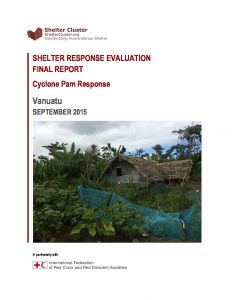
reach_vut_report_cyclonepam_shelter response monitoring_september2015
PDF1.5M

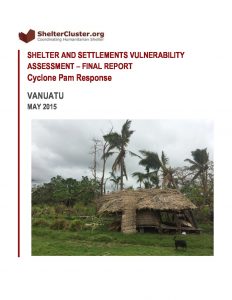
reach_vut_report_cyclonepam_shelter and settlement assessment after cyclone pam_may2015
PDF2.8M


reach_vut_database_cyclonepam_baseline assessment_may2015
XLSX662.4K

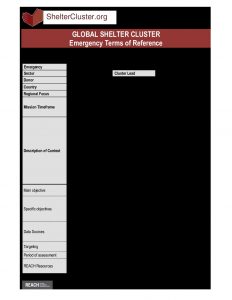
vut_tor_cyclonepam_baseline assessment_may2015
PDF328.1K

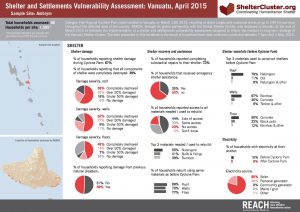
Shelter and Settlements Vulnerability Assessment:Vanuatu, April 2015
PDF5.5M

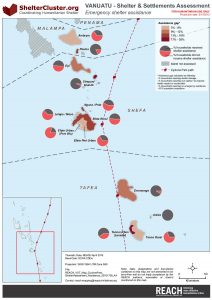
reach_vut_map_cyclonepam_shelterassessment_assistance_20151705
PDF407.0K

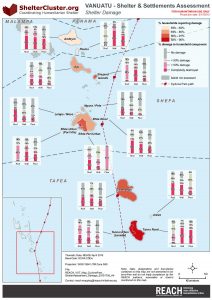
reach_vut_map_cyclonepam_shelterassessment_damage_20151705
PDF483.8K

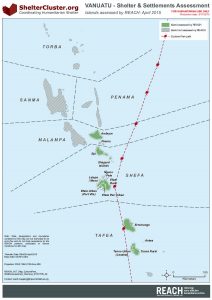
reach_vut_map_cyclonepam_shelterassessment_overview_20151705
PDF357.2K

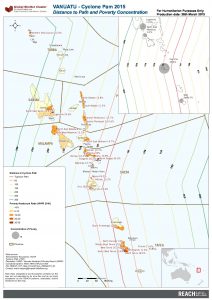
reach_vut_map_povertytrace_26mar2015
PDF1.9M